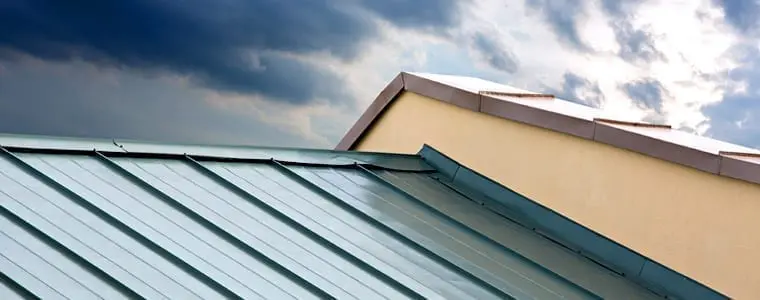When considering a metal roof for your home or commercial building, it’s essential to understand the warranty that comes with it. A typical metal roof warranty offers peace of mind and assurance of the product’s quality. In this article, we’ll delve into the key aspects of a typical metal roof warranty, helping you make an informed decision about your roofing investment.

The Basics: What is a Metal Roof Warranty?
Providing Protection
A metal roof warranty is a contract between the manufacturer and the property owner that outlines the terms and conditions under which the roofing material is guaranteed to perform. It serves as a form of insurance, safeguarding against defects, premature failures, and unexpected issues with the roof.
Types of Metal Roof Warranties
1. Manufacturer’s Warranty
This warranty, also known as a material or product warranty, is offered by the manufacturer of the metal roofing material. It typically covers defects in the metal itself, such as premature corrosion or color fading. Manufacturer’s warranties can vary in duration, with some extending for 30 years or more.
2. Workmanship Warranty
A workmanship warranty is offered by the roofing contractor who installs the metal roof. It covers issues related to the installation process, ensuring that the roof is correctly installed according to industry standards. Workmanship warranties typically range from one to ten years.
What Does a Typical Metal Roof Warranty Cover?
1. Material Defects
A typical manufacturer’s warranty covers material defects. This includes issues such as paint chalking, peeling, or fading, as well as metal corrosion or failure. The warranty ensures that the metal roofing material will perform as expected during the specified warranty period.
2. Installation Errors
If your roofing contractor offers a workmanship warranty, it covers errors related to the installation process. This includes issues like leaks, improper flashing, and incorrect fastener placement. A workmanship warranty guarantees that the roof is installed correctly.
Understanding Warranty Duration
1. Manufacturer’s Warranty Duration
The duration of a manufacturer’s warranty can vary significantly from one manufacturer to another. Some offer warranties for 20, 30, or even 50 years, while others may have shorter coverage periods. It’s essential to carefully review the warranty documentation to understand the specific terms and conditions.
2. Workmanship Warranty Duration
Workmanship warranties typically have shorter durations compared to manufacturer’s warranties. They may range from one to ten years, depending on the roofing contractor. It’s crucial to discuss the workmanship warranty duration with your contractor before the installation begins.
What a typical metal roof warranty doesn’t cover is worth noting.
1. Acts of Nature
Most warranties do not cover damage caused by extreme weather events such as hurricanes, tornadoes, or hailstorms. These events are typically considered “acts of God,” and separate insurance coverage may be necessary.
2. Lack of Maintenance
Neglecting proper roof maintenance can void your warranty. Routine inspections, cleaning, and maintenance are essential to ensure the roof’s longevity and warranty coverage.
3. Unauthorized Alterations
Any modifications or repairs made to the roof by unauthorized individuals can void the warranty. It’s crucial to hire qualified professionals for any roofing work.
Making a Warranty Claim
If you encounter issues covered by your metal roof warranty, the process for making a claim typically involves the following steps:
- Document the Issue: Take photos and gather evidence of the problem.
- Contact the Manufacturer or Contractor: Reach out to the manufacturer or roofing contractor to report the issue and request warranty service.
- Inspection: A representative from the manufacturer or contractor may conduct an inspection to assess the problem.
- Resolution: Depending on the findings of the inspection, the manufacturer or contractor will determine the appropriate course of action, which may include repair or replacement.
Conclusion
A typical metal roof warranty is an essential component of your roofing investment. It provides assurance that your roofing material will perform as expected and protects against material defects and installation errors. Understanding the terms and coverage of your warranty is crucial, as is proper roof maintenance to ensure warranty validity. By actively informing yourself about your warranty, you can ensure that you will enjoy the benefits of a durable and reliable metal roof for years to come.



Leave a Reply